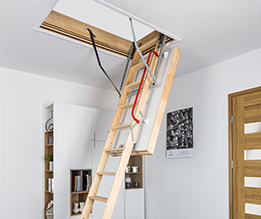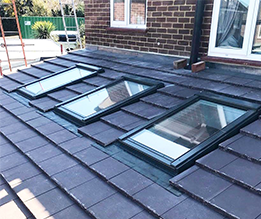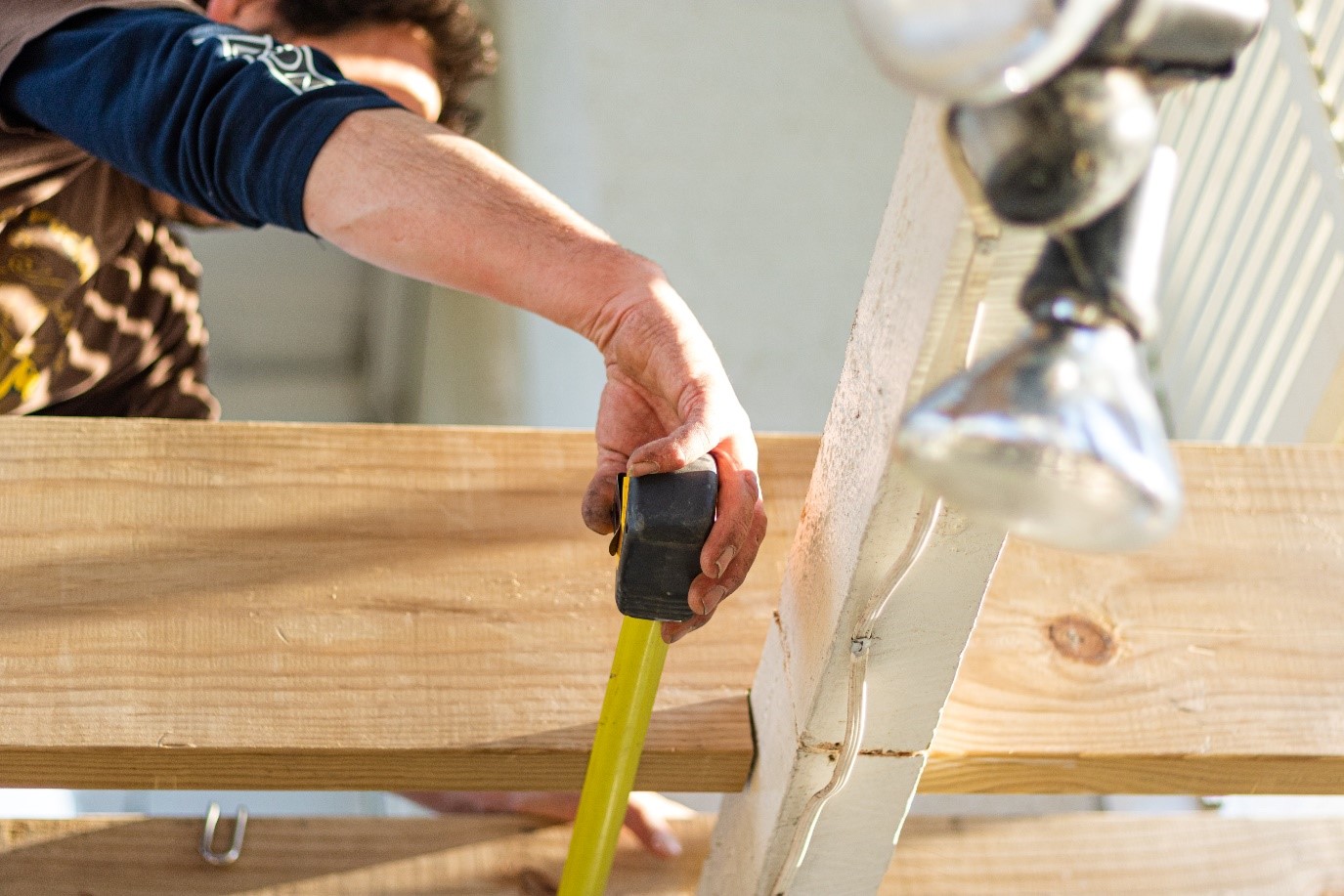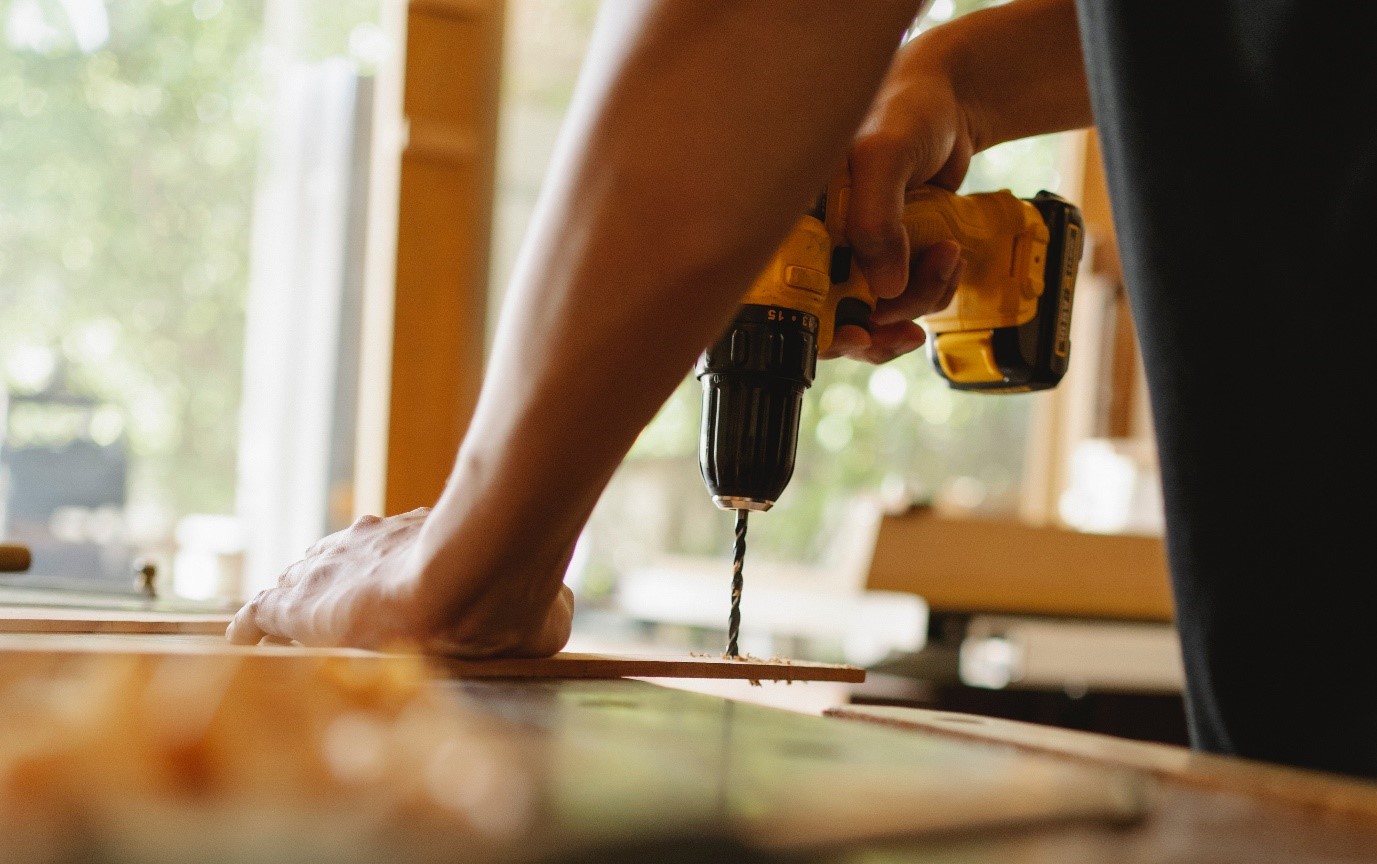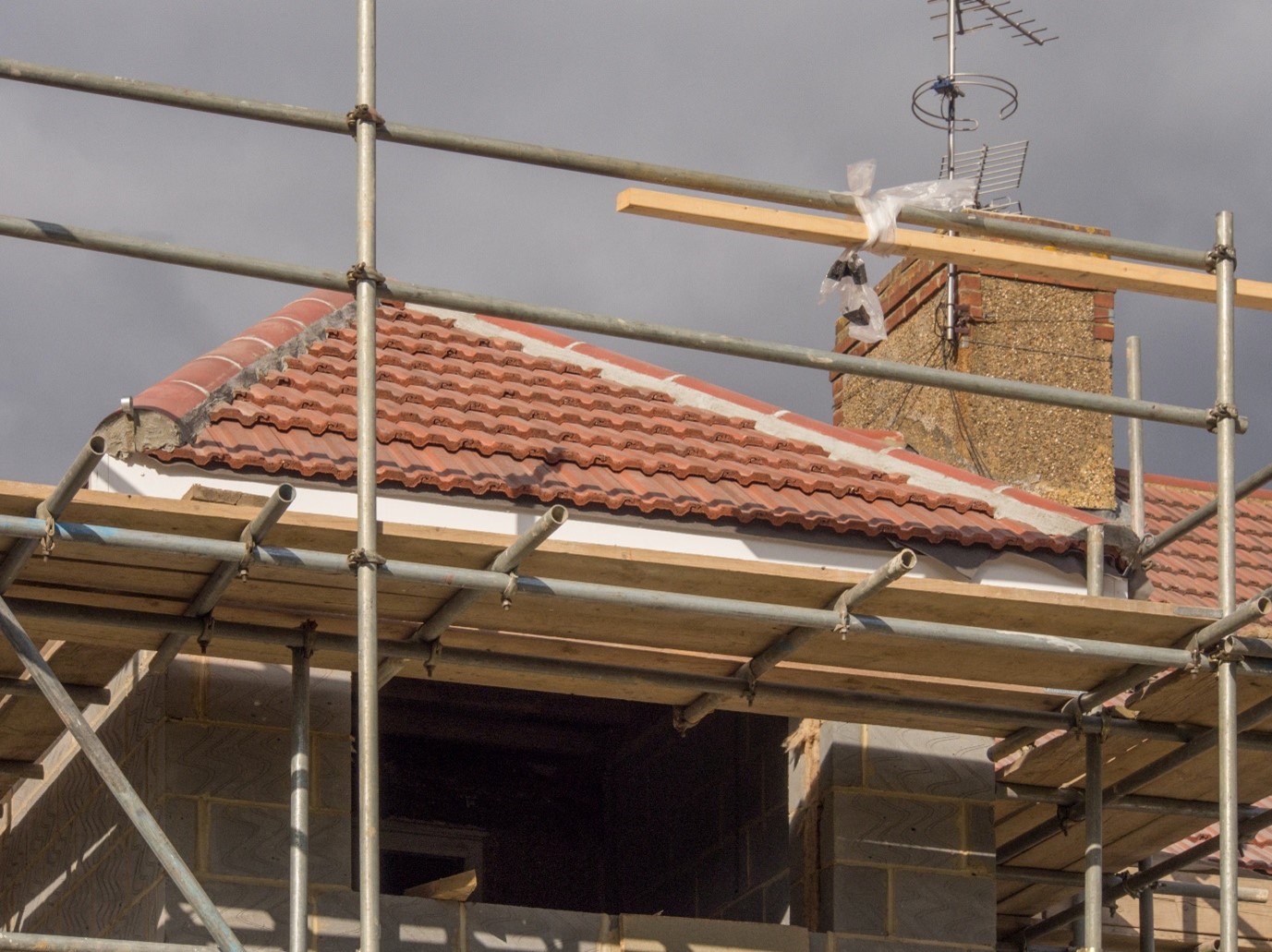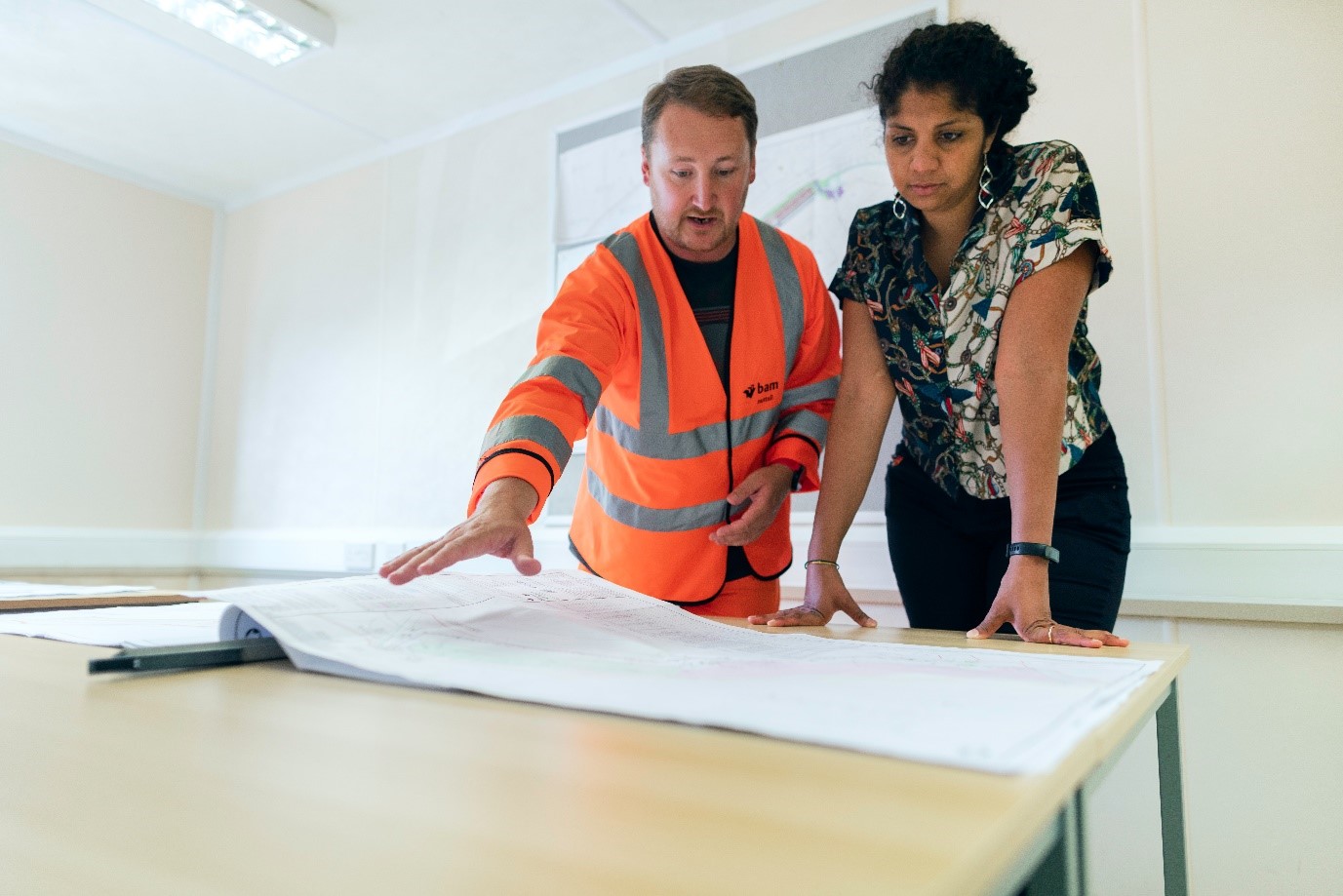What is a Contractor? How to Find Good Builders, Architects & More
Here at RW4Y, we want to fully arm you with everything you need to know when carrying out work on your house. If you've decided that an extension or loft conversion is right for you, or if you’re building your own home from scratch, one key step is to find the right contractors for your project. But how do you check that they're reliable and up to the task? To make sure you're fully prepared, we'll be sharing our tips for choosing builders, architects, and more, so you know exactly what to look out for when making your decision. We'll cover:
- What is a contractor?
- How to find a builder
- Who regulates builders?
- What qualifications should my builder have?
- How to get builders' quotes
- How to compare builders' quotes
- Do builders have to be VAT registered?
- What insurance should my builder have?
- Should I pay my builder a deposit?
- How to pay a builder
- Do builders have to guarantee their work?
- Do I need a contract with my builder?
- How to report a bad builder
- Can I sue my builder for breach of contract?
- What is an architect?

What is a contractor?
‘Contractor’ is a term used to describe any professional that is hired to work on a project by a client through a contract, though it is often synonymous with the building and construction industry. That means that everyone from the architect of your home improvement project to the person who builds it is a contractor. There are other similar terms you may come across when looking for contractors, including labourers, tradesmen, and sub-contractors.
What is a labourer?
A labourer is a contractor that specialises in manual labour. On a building site, a labourer may fulfil several roles, many of which may be on the more physical side of things such as heavy lifting. A skilled labourer specialises in a more particular type of manual labour for which they have been trained, such as bricklaying or plastering, and may otherwise be known as a tradesman.
What is a tradesman?
Tradesmen are skilled labourers that have received certificates or qualifications to demonstrate their expertise, for example through apprenticeships or higher education. Their specialisms can be manual labour such as bricklaying, or they might be more knowledge-based such as architecture. Builders can be either labourers or tradesmen, as the job description is so broad, so make sure you hire the right kind of builder for your project.
What is a sub-contractor?
Depending on your home improvement plans, you might hire a company to do the work for you. That company might then hire contractors to complete the project, and these are known as subcontractors. Their contract is with the company you’ve hired, not you, and if anything goes wrong as a result of sub-contracted works then it should be down to the company you’ve hired to fix it.
How to find a builder
The best way to find a good builder is by asking for recommendations from your friends and family. You’ll want to know that they’re able to do the task well, so make sure you ask about the quality of their work, as well as how long it took them to complete the job. The builder should also have sound knowledge of current building regulations. Knowing what you’re getting yourself into can give you peace of mind before your builder starts any work.
If no one you know has any recommendations, then your next option is to search for builders in your area using sites like Yell, Rated People, or Trust A Trader and read their reviews. While it’s natural for even the best builders to have a couple of bad reviews here and there, be wary of those who have a high number of one- or two-star reviews.
Unfortunately, there are a few scammers out there who may try to take advantage. Try to avoid builders who knock on your door and ask for work, as they usually have no recommendations or references. If the builder won’t reveal any information about previous jobs or won’t let you see any examples, then this is a tell-tale sign that they are a cowboy builder and their previous work was poor or incomplete.
It’s not always easy to ask these types of builders to leave, especially if they are standing on your doorstep, so we would recommend saying you will contact them if you’re interested. Avoid telling them that you’ll call back or give them your details because they can be persistent.
Who regulates builders?
There is no blanket organisation that regulates builders. However, a way to work out if your builder is reliable is by checking to see if they’re a part of a recognised trading association, such as the Federation of Master Builders or the National Federation of Builders. Joining a trading body isn’t compulsory, but to be a member of these associations, builders must show that they can complete work to a certain standard. So, by choosing builders that have elected to join a trading body and passed their screening tests, you can be confident that you have an extra layer of security. You can use the online search tool on these websites to look for a certified builder near you.
You should also look for a builder who is part of TrustMark — a government endorsed scheme that ensures its builders are vetted and independently inspected to make sure they meet the government’s standard of work. You can find builders who are registered with TrustMark on their site by searching your postcode and the work to be carried out.
Alternatively, look for a builder that is part of another building regulator scheme, such as the Consumer Codes Approval Scheme. If they’re part of this scheme, you’ll be able to report any issues to your local Trading Standards office. You can check whether your builder is part of the CCAS by searching their name on the Charted Trading Standards Institute website.
What qualifications should my builder have?
While you should always try to choose a builder from a trusted trading body, there are no formal qualifications that your builder needs to have in order to do the job. Some builders may have a Construction Skills Certificate Card or a National Vocational Qualification, which states that they have had appropriate training in the trade. However, these are not essential.
How to get builders' quotes
Once you’ve shortlisted some building contractors that you’re interested in working with, it’s a good idea to get quotes from them to see how much the work you want doing will cost you. Make sure you give them as much detail as possible and ask any relevant questions at this stage. You should give everyone the same brief so you can make an accurate comparison.
The information you give to each building contractor should include:
- A brief of the work to be carried out.
- Plans that have been drawn up by your designer or architect.
- A full specification of what the job will entail.
- What planning permission you have been granted (if any). Our guides on whether you need planning permission for loft conversions, extensions, garage conversions, and skylights and roof windows will help you work out what kind of planning permission to get.
- Information on the materials that will be used. Be clear on whether you’ll be sourcing these yourself or would like your builder to source them for you.
- Details of the site, including the conditions and any issues that might affect work (e.g. noise levels, use of facilities, and waste disposal).
- How long you expect the work to take.
- Details of other tradespeople carrying out other jobs (such as electricians and plumbers). If you’d like your builder to organise this themselves using their network of reliable tradespeople, make this clear in your plans.
Some questions you may want to ask your builder include:
- Have you ever worked on a job like this before? — The right builder will be experienced in your kind of project, minimising the risk of something going wrong.
- Can you provide references so I can contact them? — Previous customers will be able to give honest reviews. They may also be able to provide photographs of the contractor’s work.
- Are you VAT registered? — A good builder will be VAT registered. You can read more about this in the section ‘Do builders have to be VAT registered?’
- How many jobs do you currently have on? — If they have a lot of work and only a few employees, there’s a chance they could be overstretched and not be able to complete the job to a high standard.
- What is your preferred method of payment? — Be wary of builders who will only accept cash payments or payment in a lump sum. You can read more about this in the ‘How to pay a builder’ section below.
- Do I need to pay a deposit? If so, how much? — A good builder will never ask for a deposit of more than 25%. You can read more about this in the ‘Should I pay my builder a deposit?’ section.
How to compare builders' quotes
Try to get quotes from at least three building contractors so you can compare their prices. It’s a good idea to ask for these quotes broken down, so you can see exactly what the work and materials will cost. If all the quotes are in the same ballpark, then you have an estimate for what the job will cost, and you can weed out any that seem suspiciously cheap.
Of course, when you’re getting any work done, you want to make sure you’re getting a fair price. But it’s important that you don’t just pick a builder who will offer you a very low price that seems too good to be true. They don’t say ‘you get what you pay for’ for nothing. Usually, low prices mean a low standard of work, especially in the building industry, and some builders will offer prices that are enticingly low to convince you to choose them. However, it’s likely that they may be using seconds, rejects, or faulty products to carry out the work.
To check you’re getting the right price, take a look at the breakdown of the quote. Make sure you’re only paying for the builder to do the job, and not any extra sub-contractors (unless you’ve agreed to do this). Then, ask yourself if it’s a price you expected to pay for the work being done, and if it fits within your budget.
The more detailed the quote, the better. This shows the builder has nothing to hide and you know exactly what to expect from the off. You can cross reference your quotes with the reviews of each business to choose the right builder for your project.
If you’re not sure which quote to go for, then it’s a good idea to speak to your architect or designer. They can provide a second opinion on how much the work should cost, and can also double check that everything has been included to help you make a more informed decision.
Do builders have to be VAT registered?
It’s not a legal requirement for all businesses to be VAT registered, however it will provide you with an extra level of security. The Government states that a business must be registered and pay VAT if its taxable turnover is over £85,000. The only reason a builder should not be VAT registered is if they earn less than this amount. However, they can (and should) volunteer for this scheme if they are eligible, as it means they can claim back VAT on any materials that they buy.
Your builder should be able to provide you with a VAT number which has been provided by HMRC to state that they are VAT registered. You can check that this number is genuine by enquiring with HMRC.
Be wary of builders that have listed VAT on their quote but are not VAT registered, as you could be paying more than you need to.
What insurance should my builder have?
A good builder should always have up-to-date insurance in the relevant policies. There are three insurance policies all contractors should have. These are:
- Public liability insurance: This will cover them (and you) if there is any damage to your property or injury to an individual. While this isn’t a legal requirement, it will act as an extra layer of protection, and will help make sure you get compensation if you need to make a claim against them.
- Employers’ liability insurance: This is a legal requirement if your contractor intends to hire other employees to carry out work, even if they own the business or have only one employee. This type of insurance will help protect your builder against liability to injury or illness that happens to employees as a result of their work.
- Contractors’ all risk insurance (C.A.R.): This covers the cost of damage to a site or equipment that occurs while the work is in progress. These policies are flexible, meaning the builder chooses the type of cover that works best for them. So, it’s a good idea to check that their policy suits your building project.
Many insurance providers offer builders insurance policies that can be personalised to include the above, as well as any extras such as tool and equipment cover. So, it’s worth asking your builder exactly what kinds of insurance policies they have.
Contractors who are part of a trading body are usually asked for proof of insurance before joining, but it’s a good idea to ask yourself before the builder starts any work. Make sure the date of the insurance policy doesn’t run out before the work is due to be completed, as they won’t be covered if anything happens.
Usually, your contractor will pay for their builders’ insurance. However, if they don’t have insurance, it’s vital that you’re covered. In this case, you can take out your own builders’ insurance as the homeowner. For more information about insurance when building your own home, be sure to read our self-build insurance guide.
Should I pay my builder a deposit?
Once you’ve chosen your builder, you may be asked to pay a deposit to secure the booking. This may also cover the cost of materials that your contractor will need to get before he starts the work. In this case, you should always ask for a receipt so you can see exactly what your money has gone towards.
Your deposit will usually be no more than 10% of the final cost of the work (but could be up to 25% depending on the cost of your materials), and most good builders will not expect you to pay upfront for all the work until it is complete.
Never pay for something in full before the work has been carried out. If you are asked to pay for the quote in full before the work has started, then it’s possible that the builder could leave the work incomplete or to a low standard because they’ve already been paid.
Usually, your contractor will pay for their builders’ insurance. However, if they don’t have insurance, it’s vital that you’re covered. In this case, you can take out your own builders’ insurance as the homeowner. For more information about insurance when building your own home, be sure to read our self-build insurance guide.
How to pay a builder
After paying a deposit, you can either pay your builder the full sum after all the work has been completed or divide it into smaller amounts. For large projects, it’s common to split the cost and pay your builder after each stage of the project is complete. You’ll then pay the final amount when the whole project is finished.
Whatever payment plan you decide to use, make sure it is written in your contract to get a legally binding agreement. We’d recommend checking that the work has been carried out to a suitable standard before paying.
You should always pay your contractor via bank transfer, credit card, or cheque, and never pay with cash. Paying through your bank provides an extra layer of security should any problems occur, so you should also ask for proof of payment. Before paying your builder, it’s always a good idea to check the bank details with them so you know you’re sending your money to the right place.
Do builders have to guarantee their work?
Your builder should always pass all guarantees, warranties, and certificates onto you once the work has been completed. However, it’s not very common for the builder to provide their own warranty for their work. For this reason, it’s vital that either you or your builder has an appropriate insurance policy. You should also highlight in your contract an agreement to make any repairs that need doing as a result of incomplete or unsatisfactory work.
Do I need a contract with my builder?
For total peace of mind, you should always ask your builder or contractor to sign a contract if they don’t offer. This makes sure everyone involved understands what is expected of the project. This also helps protect you if any of the work doesn’t go as planned.
The contract doesn’t need to be formal or filled with legal jargon, it just needs to outline exactly what you’ve agreed on. If your builder is part of a professional body, they should be able to draw a contract up for you, but make sure you double check it before signing. The contract should include:
- Details of the kind of work to be carried out and the location.
- Information on facilities, including parking and any restrictions.
- Expectations of timing, including start and finish dates. You may also include whether you expect there to be any delays and how these will be resolved.
- What materials will be used, including who will source and pay for them.
- If any subcontractors will be brought in.
- How the builder will dispose of waste, including who will arrange skip hire.
- How much the work will cost as well as how and when each payment will be given.
- A time period that all repairs should be made within if the job is unsatisfactory.
If your builder can’t draw up a contract, you can create one yourself. You can find various construction contract templates online. All you’ll need to do is input the relevant information.
A written contract is legally binding, which means you could be entitled to compensation if the work is incomplete or badly executed. Be wary of any builders that refuse to sign a contract, as this could be a sign that they anticipate their work won’t meet your expectations.
How to report a bad builder
As part of your contract, you should agree that the builder will return to fix any issues that happen as a result of their work. However, if they refuse, then you may need to take some steps to report them.
If your builder is part of a trading body, such as the Federation of Master Builders or the National Federation of Builders, then you should be able to file a complaint with them.
If your builder is part of the Consumer Codes Approval Scheme (CCAS), your next port of call should be to report the activity to your local Trading Standards office. They should be able to offer advice on what to do next.
If your builder is not part of the CCAS or any other trading body, then your local Trading Standards office won’t be able to help. In this case, you should contact the Citizens Advice consumer helpline by calling 0808 223 1133 or filling out an online form. Give them as much detail as you can, including:
- What the problem is
- Photographic evidence of the problem
- Evidence of invoices
- Your signed contract
- Details of any conversations you’ve had with your contractor
Can I sue my builder for breach of contract?
If the work carried out in your home is of a poor-quality or isn’t what you agreed on, and all other forms of dispute resolution have failed, then you are able to sue your builder for breach of contract.
Bear in mind that suing your builder should be a last resort. Before taking legal action, you should make sure that you’ve exhausted all methods of reporting a bad builder. If all else fails, then you can make a claim.
To do this, you’ll need to prove that the builder signed a legally binding contract, as well as give evidence that the work carried out failed to meet the agreed standard. You must also be able to show that you suffered a loss as a result of the breach of contract, whether that’s monetary loss or injury. For example, if you’ve had to hire a new builder to fix the work, you can claim this extra cost back from the first contractor.
If you can prove all three things, you may be entitled to compensation.
Bear in mind that this method could cost you money in legal fees, so you should be fully prepared for what the process will entail, and always seek legal advice before making any claims.
What is an architect?
If you’re planning a large home improvement project such as an extension or even building your own home, you’ll want to seek out an architect before you start looking for a builder. Hiring an architect isn’t a legal requirement in most cases and it will add to the overall cost of your project, but it adds value by ensuring your new structure is perfect from the get-go, saving you money on corrections, repairs, and legal fees.
What does an architect do?
Architects do more than just design buildings and structures — they also take into consideration the interior of what you’d like to build and the space around it all in minute detail, ensuring that every inch of your home improvement is safe, legal, and budget-friendly, and that it either benefits your property or has as little negative impact on it as possible. They will help ensure your proposal is in line with building regulations and whatever planning permission you have, as well as liaise with your builders to make sure you’re getting exactly what you’ve asked for. They may even project manage your home improvement for you.
What is an architect technician?
There aren’t that many differences between an architect and an architect technician in the grand scheme of things, but the main distinction is that architect technicians tend to specialise on the more technical aspects of a build, rather than the aesthetics. However, that’s not to say that architects aren’t technical too, or that architect technicians aren’t creative. Instead of choosing one over the other, look for either kind of architect whose portfolio suits your needs and preferences best.
How to find an architect
The process of finding an architect is largely the same as finding a good builder. You can ask around for personal recommendations, research online using tradesman-finder tools, or use a database such as the Royal Institute of British Architects. If you have a builder in mind that you know you want to use, you could ask them to recommend an architect that they’ve worked with before. That way, you can be sure that they are trustworthy, and as the two parties already have a good relationship, this should help the project go a lot smoother.
How to choose an architect
When narrowing down your options, be sure to view each architect’s portfolio to see whether they’ve worked on similar projects before — and whether you like their style! You will also want to meet with the architect to see if you work well together as there will be a lot of discussions and negotiating throughout your project to ensure you get the structure you want. Architect fees have not been standardised in the UK since 2009, so although you may not have to pay upfront (most architects will ask to be paid in stages), it’s important to discuss costs thoroughly before you make your decision as the price will vary from architect to architect.
When it comes to any building work, whether it’s a loft conversion, an extension, or another home improvement, you want to make sure you hire good contractors. By following the tips in this guide, you will know exactly what to check and which questions you need to ask to find the right builders, architects, and other tradesmen for your project.
If you’re thinking of improving your home, don’t forget to take a look at the rest of the advice in our knowledge hub. We have plenty of other guides that will help you manage your loft conversion, from deciding if your loft can be converted to getting planning permission for your loft conversion. We even have a full series of guides to help you build your own home from scratch over in our self-build hub.
For more information about loft conversions, or to discuss your roof window and loft ladder requirements, call the FAKRO Support Team on 01283 554755 or email: sales@fakrogb.com.

